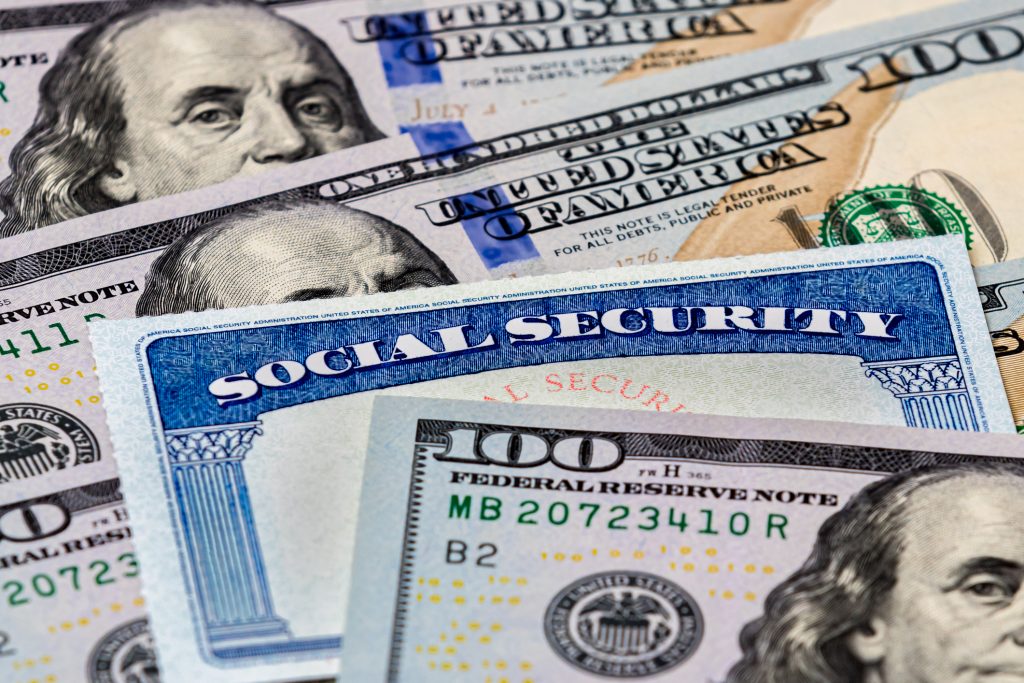The richest Social Security beneficiaries take home $5,108 per month in 2025. That amounts to nearly $62,000 per year. You may never see anything close to that, and that’s pretty normal. The average benefit as of January 2025 is only $1,979 per month, or a little under $24,000 per year.
As you may have guessed, you need a high income if you want to take home the maximum benefit. But that’s not the only thing that matters. The richest Social Security beneficiaries have three things in common, and if you understand them, you might be able to lock in a larger benefit for yourself one day.
Where to invest $1,000 right now? Our analyst team just revealed what they believe are the 10 best stocks to buy right now. Learn More »

Image source: Getty Images.
1. Work at least 35 years before retiring if you can
The current Social Security benefit formula looks at your income history over your 35 highest-earning years to calculate your benefits. You don’t need to work this long to be eligible for checks. You could apply with as few as 10 years of work history. However, working 35 years or more is an important step in maximizing your benefits.
When you have a shorter work history, the Social Security Administration adds zero-income years to your benefit calculation. Even one of these drastically reduces your monthly checks. If you earned $60,000 per year in today’s dollars for 35 years, you’d qualify for a benefit of $2,311 per month at your full retirement age (FRA). More on that in a minute. If you’d only worked 34 years before retiring, you’d get just $2,265 per month. That’s $46 less per month. Over 20 years, that’s an $11,000 loss.
Some people have to retire before 35 years due to illness or family caretaking responsibilities. But if you’re able to remain in the workforce this long, it’s worth it. Working even longer could also be to your advantage if you’re earning more now than you used to. After you pass the 35-year mark, your higher-earning years start to replace your lower-earning years in your benefit calculation, boosting your checks.
2. Do what you can to maximize your income during your working years
Increasing your income today can help you get more out of Social Security in retirement. This can involve working overtime, finding a better-paying job, or starting a side hustle. As long as you’re paying Social Security payroll taxes on that income, it’s helping you increase your future benefits.
That said, high earners don’t pay Social Security taxes on all their income. In 2025, you only pay this tax on the first $176,100 you earn. This limit was lower in past years. Earning more than the tax cap can be a big help to your finances today. But it won’t increase your future Social Security benefit.
3. Don’t sign up until age 70
The Social Security Administration first calculates the benefit you qualify for at what’s known as your full retirement age (FRA). This is 67 for most workers today, though some older adults have FRAs as young as 66.
If you claim at any age other than your FRA, the government adjusts your benefits up or down. Claiming early reduces your checks by up to 30%, while delaying them increases your benefit until you qualify for your largest checks at 70. This is up to 132% of what you qualify for at your FRA.
You need to delay Social Security until 70 if you want to take home the biggest checks the program offers. However, this isn’t the right choice for everyone. Those who don’t have personal savings may have to apply for Social Security early to stay out of debt. And those with short life expectancies might get more from the program by signing up as soon as possible. However, for many Americans, delaying Social Security would result in the largest lifetime benefit.
It doesn’t hurt to compare different claiming ages before deciding which is right for you. The easiest way to do this is to create a my Social Security account. There’s a tool here that can help you estimate your Social Security benefit at every claiming age. Choose a few options, multiply the estimated monthly benefits by 12 to get your annual benefits at those ages, then multiply this by the number of years you expect to receive benefits. This will help you estimate which age will give you the most money overall.
The $22,924 Social Security bonus most retirees completely overlook
If you’re like most Americans, you’re a few years (or more) behind on your retirement savings. But a handful of little-known “Social Security secrets” could help ensure a boost in your retirement income. For example: one easy trick could pay you as much as $22,924 more… each year! Once you learn how to maximize your Social Security benefits, we think you could retire confidently with the peace of mind we’re all after. Simply click here to discover how to learn more about these strategies.
View the “Social Security secrets” »
The Motley Fool has a disclosure policy.
 benzinga.com
benzinga.com fool.com
fool.com



